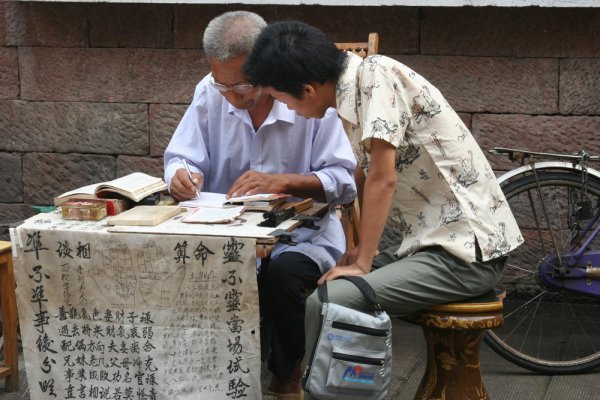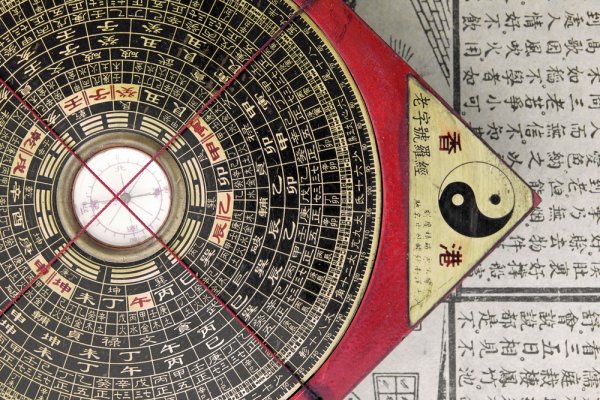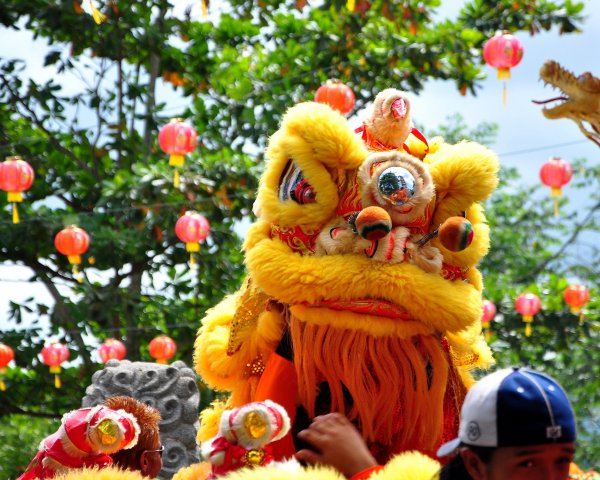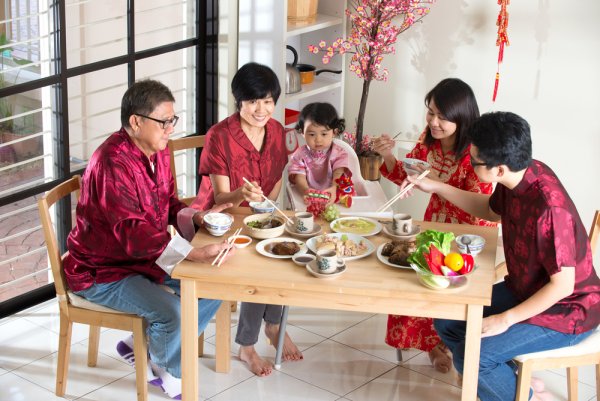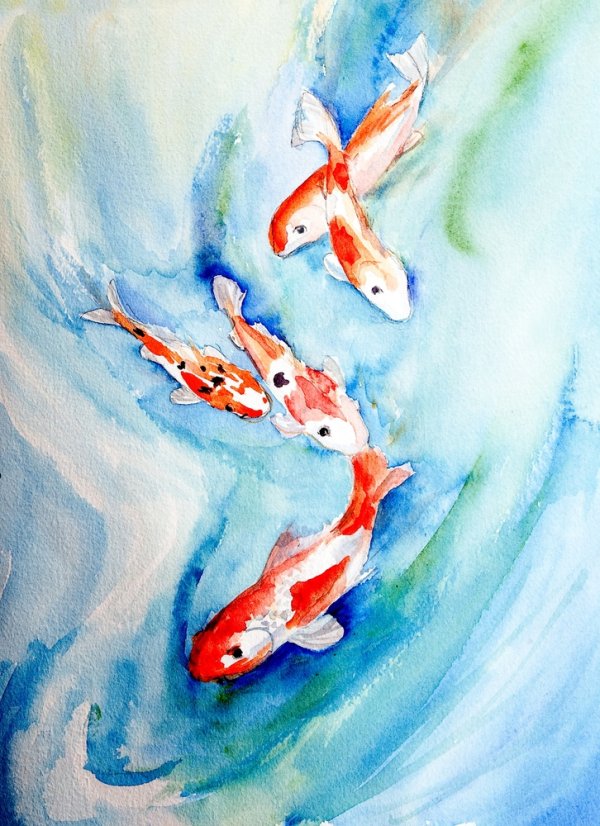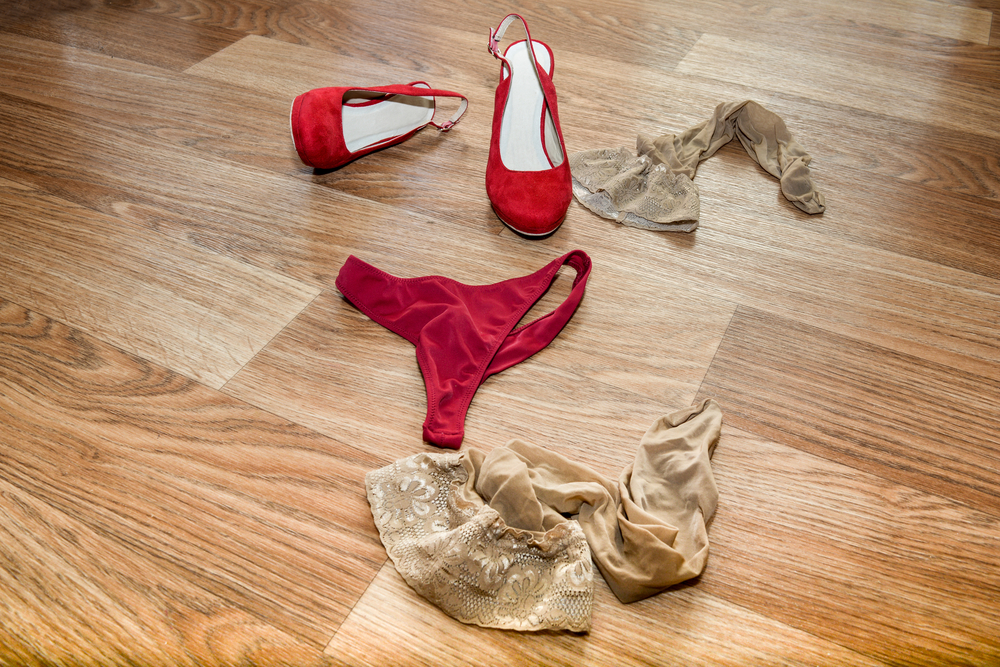Culture and Society: Superstitions and Folklore
General
China has an ancient history and a culture rich in customs and traditions. The rituals, folk beliefs, and superstitions that have developed from these traditions are still prevalent in everyday life in China.
Many Chinese superstitions are based on Chinese characters and homonyms. Fish, for example, are considered lucky because the Chinese word for "surplus" and the Chinese word for "fish" are both pronounced yú. This explains why many Chinese homes have images or pictures of fish as decorations or ornaments. The number 8 is considered to be the luckiest number, because it sounds like the Chinese word for "prosperity."
Reliance on traditional beliefs by Chinese people has reportedly declined with the government’s campaign to increase people’s appreciation of science. But a recent survey by the China Association of Science and Technology showed that a majority of Chinese still hold to old ways. A quarter of the 10,000 people surveyed still believe in fortune telling, and as many as 85 percent of Chinese youth have their fortunes told.
Many businessmen who deal with Chinese take it upon themselves to study Chinese practices and beliefs so as not to offend the sensibilities of their Chinese business counterparts. Likewise, they respect the fact that their Chinese partners or employees observe such practices. Most Chinese families continue to observe superstitious beliefs and rituals because they symbolize their cultural roots and give them a sense of identity or uniqueness. For those who live outside China, it is a way to retain their culture and show people their pride in their origin.
Specific Superstitions
Feng Shui
Feng Shui, pronounced foong swee or fung shway, is loosely translated in English as "the way of the wind (feng) and water (shui)." Its practice, also referred to as geomancy, is derived from the Chinese principles of yin and yang. Feng Shui represents five elements- water, earth, fire, metal, and wood. Wind and water are considered the two most important elements, as it is believed that they are the intermediaries between earth and heaven.
The purpose of Feng Shui practice is to be in harmony with, not against, one’s surroundings. It involves the art of arranging objects and space in harmony with nature, and its principles are popularly used in both architecture and interior design. Good Feng Shui is believed to promote good luck, prosperity, success, good health, and almost all things positive and optimistic. The opposite also exists: negative Feng Shui is believed to promote the opposite- bad luck, chaos, failure, and sickness.
Feng Shui practice is believed to have begun around 6000 BC, with the alignment of graves. The first published material about Feng Shui surfaced around 320 A.D.
Feng Shui is based on the Taoist theory that everything that exists is composed of chi, or the energy or life force. The chi consists of positive and negative components- the yin and yang- opposites of each other. The proper alignment of the elements of yin and yang has both direct and indirect effects, not only on the environment, but on the people living within the environment. A good balance of the positive and negative energies is achieved with the wind (feng) dispersing the chi harmoniously and evenly throughout the universe and water (shui).
One principle is not to disturb the flow of energy in a room. Since chi flows through doorways, doors should not face each other, as that would encourage energy to quickly exit. Windows should also face or open up to a pleasing view, or if that is not possible, well-positioned artificial décor or plants should be used. It is also advisable to choose a rectangular-shaped lot to build a house on, ideally located on the top of a hill and with a lot of open space in front of the house. Among other Feng Shui tenets are that staircases should have an even number of steps, doors or gates should not directly face a road, houses should not be built facing the north, and bedrooms should not be situated above a garage or below a toilet. Negative forces can be countered by the use of mirrors, crystals, and birthstones, as well as talismans such as the dragon and other symbols or images.
The practice of Feng Shui has become even more popular in recent years, as more people have embraced Asian philosophies and beliefs. Many non-Chinese consult Feng Shui experts when building their homes or offices as well as when decorating a room or even a workstation.
Chinese New Year
Legend has it that in ancient China, there was a beast known as Nian, who devoured people during the New Year until an old man found a way to overcome him. This event started the celebration of Chinese New Year, and the term Nian has become synonymous with the event. The first Chinese New Year was probably celebrated around 2000 B.C., on the first day of the Lunar Calendar. Today, it is an event still steeped in tradition and superstition.
During the preparation period, which starts a month ahead, various superstitions are observed. For instance, houses are cleaned from top to bottom to drive away any traces of bad luck. Cleaning supplies, like brooms and dusters, are put away until after New Year’s Day so as not to sweep away good fortune. Whenever possible, the doors, walls, and windows are repainted red for good luck, wealth, and happiness. Decorations, mostly paper cutouts or paintings with lucky symbols or words, adorn the house. Family members get haircuts in order to look fresh and new on New Year.
New Year’s Eve is a grand celebration for the Chinese, and the food served during dinner is carefully chosen to usher in a lucky year. Certain foods and delicacies are a must, such as dumplings (jiaozi), that symbolize wealth or fortune since they resemble the shape of gold or silver ingots. Other traditional foods on the dining table include prawns for long life and happiness; oysters (ho xi) for good luck; and, raw fish salad (yu sheng) for prosperity. Everyone, including children, sips hard liquor called jiu for long life, because jiu has the same pronunciation as the Chinese word for longevity. Eating a whole fish is also encouraged, as it symbolizes togetherness and abundance. Noodles should be eaten uncut to signify long life.
Most Chinese wear red clothing again for good luck and to ward off bad spirits during New Year’s Eve. Shooting off firecrackers or fireworks, which is also practiced by other cultures, is believed to have originated in China, and is associated with frightening off the dragon beast. At the stroke of midnight on New Year’s Eve, the Chinese shoot off firecrackers to send out the old year and usher in the new. Every window and door in the house is opened to welcome in the New Year.
Many more traditions are practiced on New Year’s Day itself:
- Giving money in red envelopes or hongbao for good luck and wealth
- Performing or watching dragon or lion dancing, in which a giant replica of a dragon or lion is moved by a group of dancers to the beat of drums
- Eating candies or sweets to bring a sweet year ahead
- Staying awake all night on New Year's Eve, to make one’s aged parents live longer and healthier
However:
- Do not lend any money, so as not to start the trend of lending money all year round.
- Buying books brings bad luck, because the word "book" in Cantonese means "lose."
- To avoid washing away good luck, do not wash your hair.
- Be careful who you meet or see first, as this will have a bearing on what the New Year will hold.
- The first few words you hear during the New Year will also be affect the coming year.
- Do not use knives, scissors, or any sharp objects, so as not to cut off good luck.
- Do not talk about death, dying, or the year that has just passed.
- Avoid crying; if you cry on New Year’s Day, you may end up crying or being sad throughout the year.
- Do not greet anyone in their bedroom, as it is considered unlucky.
- Avoid spending too much money or your wealth may be squandered away during the year.
- Avoid buying shoes, as the word "shoes" sounds like the Cantonese word for "rough," and no one wants to have a rough or difficult year.
- Do not visit people on the third day of the new year, or you will argue with them.
Superstitions and rituals associated with the celebration of the Chinese New Year are still observed, not only by the Chinese but by other nationalities as well, from the Far East to America and Europe. Hotels, restaurants, and shopping malls in many parts of the world, for instance, commission performers to perform traditional dragon or lion dances as a New Year celebration, or they serve "lucky" Chinese food. After all, who does not need good luck'
Numbers
Numerology has always been a significant part of Chinese culture and history. Chinese superstitions involving numbers go beyond the unluckiness of the number 13. In fact, 13 is not considered unlucky in China, but other numbers are.
The Chinese consider the number 4 to be the unluckiest number, because its pronunciation in Mandarin (si) resembles the term for "death" or "dying" (shi). This superstition is so widely practiced that the Chinese government has reportedly issued a law prohibiting the use of the number 4 in car codes or on license plates in an effort to reduce motor or traffic accidents. On the fourth of each month, cardiac deaths for Chinese and Japanese Americans spike 7 percent compared to other days, according to a massive new study by a team of scientists at the University of California-San Diego. It's considered so unlucky in China and Japan that many hospitals don't list a fourth floor, and the Chinese air force avoids assigning the number four to its planes. Numbers 7 and 1 connote "death" and "loneliness," respectively, in Chinese culture, and so are also avoided.
The number 8, on the other hand, is considered as the luckiest of all numbers, and so is the favorite of many Chinese. This is because its pronunciation sounds like the Chinese word for "fortune" and "luck." Others say it is because its shape that resembles the symbol for infinity. The number 6, like 8, is also considered lucky, as its pronunciation sounds like the Chinese word for "okay." The number 9 is also considered good because in Cantonese, its pronunciation sounds like the word "sufficient."
The Chinese believe the superstitions about numbers to such a degree that they do not hesitate to spend extra money or go to great lengths to include lucky numbers in their addresses, telephone numbers, or car plate numbers. Even retailers consider the superstitions when designating prices and bar codes. The Chinese consider dates with in 8, 18, 28, and other multiples of 8 to be auspicious for weddings, births, and other special events such as store openings , or product launches.
Other Superstitions
Bad Luck Signs and Actions
- Seeing a crow
- Sitting under a crossbeam in a room
- Washing your hair on your birthday
- Clipping toenails or fingernails at night
- Beating a person with a broom
- Marrying somebody with the same family name
- Dreaming of snow or teeth
- Wearing a moustache
- Breaking the string of a necklace
- Getting injured, seeing blood, or breaking precious items just before traveling
- Giving a clock as a gift to a friend
- Unless a person is born in October, and opal is his birthstone, it is unlucky for him to wear opals
- Pointing at grave stones
- Worshipping gods at night (except for holidays)
- Buying white paper lanterns
- Growing banana trees
To Drive Away Bad Spirits (especially for travelers)
- Wear red underwear and red shoes
- Wear a strand of 49 garlic bundles on the head
- Wear jade stones or jewelry
- Wear crystals
- Wear safety charms that can be bought at Buddhist temples
- Carry seven pieces of leaves from a banyan tree
- Carry 36 pieces of glutinous rice
Food and Dining
- As a guest, do not eat all the food on the plate, as it indicates that the host has not served enough food.
- Do not rise from the table to close the meal ahead of the guest-of-honor.
- It is a compliment to slurp soup loudly, as it means that the soup tastes good.
- It is bad luck to turn over a fish on the plate, as it may cause boats of fishing families to overturn as well.
- When fish is served, its head is reserved for the guest-of-honor. To emphasize this, the fish head on the platter points toward him or her. The fish’s eyes and lips, however, are offered to the eldest lady present during the meal.
- If pepper is spilled, a serious argument with a friend may be expected.
Colors
- Red is considered to be the luckiest color, as it symbolizes good luck, happiness, love, and prosperity. As a result, red is often worn during Chinese weddings.
- Black symbolizes all things negative, such as sadness, evil, sin, accidents, disasters, misfortune, and bad luck. Black clothing should not be worn during celebrations like weddings and festivals. The use of black for home decor is also discouraged.
- White, considered to be the most neutral and balanced of all colors, is used in funerals because it symbolizes purity and honesty.
Nature
- Eclipses, lunar or solar, are due to a dragon trying to eat the sun or the moon.
- The rainbow is the result of a meeting between the impure vapors of the sun and of the earth.
On the Use of Chopsticks
- Dropping or crossing chopsticks brings bad luck, except in dim sum restaurants, where crossing them signals to the waiter that diners are ready to settle the bill.
- Pointing chopsticks upward or at another diner invites bad luck also.
- A diner who finds an uneven pair of chopsticks will likely miss a train, plane, or boat.
- Do not stick chopsticks upright in a rice bowl; this is only done at funerals.
Going Out at Night
- Do not turn around if someone taps you on your shoulder--it may be bad spirits.
- Do not wear clothing with your name printed on it, or the spirits may call you out.
- Do not shine flashlights up into trees or you may disturb ghosts who loiter there.
- Avoid patting your friends on their heads or on their shoulders. It is believed that a person has three fires to keep spirits away: two on the shoulder and one on the head. Patting them there is akin to putting these fires out, and it becomes easier for spirits to enter.
Pregnancy and Babies
- Pregnant women should not use glue, as it may cause difficult delivery of the baby.
- Pregnant women should not strike an animal, as her child may look like that animal or behave like it.
- Do not name an unborn baby, as it will cause bad luck.
- Zodiac signs will determine a baby's fate. Of the 12 animal zodiac signs, the luckiest is the dragon.
- An expectant mother who rubs her stomach too much may produce a spoiled child.
- Do not praise a newborn baby, as this invites evil spirits and ghosts.
- Avoid calling a newborn baby by his or her name to fool the evil spirits who may want to kidnap the child. Instead, pet names such as "puppy," "little bear," or "kitten" should be used.
- A baby born with a concave navel or wide ears will have a prosperous life.
- A baby born with two or more hair crowns will be naughty or disobedient.
- A baby born with thick ears or a concave navel will have a happy and successful life.
- The first object a baby grabs will signify the child's destiny: for instance, if he grabs a pen, he will likely become a writer.
- Rubbing a cooked chicken's tongue on the baby's lips will make him a good talker.
- Swearing during pregnancy is avoided, as it may cause the baby to be cursed also.
- The baby’s imperfections or deformities can be blamed on the actions of the mother while she is pregnant. For instance, sitting cross-legged will result in the baby’s umbilical cord being coiled or twisted.
Marriage and Weddings
- Wedding clothes should be red, yellow, or white for the union to be lucky.
- Wearing black, blue, or gray during the wedding will bring bad luck to the marriage.
- A boy, preferably born during the Year of the Dragon, must prepare the newlywed's matrimonial bed to ensure good luck and the birth of a son.
- Do not marry someone who is older or younger by three or six years.
- If a relative of either the bride or groom dies before the wedding day, the wedding should be postponed for a year or 100 days.
Death and Funerals
- If a baby or child dies, no funeral rites are performed, and the child is buried discreetly.
- A deceased person's children and grandchildren should not cut their hair for 49 days after the death.
- The family of the deceased should wear red clothes, since red is a color of happiness.
- Mirrors must be hidden or covered, because a person who sees a reflection of the coffin in the mirror will have a death in his family also.
- White cloth must be hung on the doorway of the deceased’s house; a gong is placed on the left if the deceased is male, and right if female.
- Statues of gods or deities must be covered with red cloth or paper.
- The corpse should not be dressed in red clothes, or he or she may become a ghost. Clothes used to bury the dead are typically white, black, brown, or blue.
- Before being placed inside the coffin, the corpse’s face should be covered with yellow cloth, and the body with a light blue one.
- The coffin is placed inside the house if the deceased died at home, and in the courtyard if he died away from home.
- The coffin is placed in such a way that the head of the deceased is facing the inside of the house.
- Food is placed in front of the coffin as an offering to the deceased.
- An altar with burning incense and a lit white candle are placed at the foot of the coffin.
- At the wake, the family members of the deceased gather around the coffin according to their order in the family. For instance, the eldest son sits at the left shoulder of his parent and the deceased’s spouse at the right.
- The length of the wake depends upon the financial capabilities of the family, but should be at least a day.
- Joss paper or prayer money believed to provide the deceased with enough income in the afterlife are burned continuously during the wake.
- The deceased’s comb is broken into two halves—one-half is placed inside the coffin and the other half retained by the family.
- Wailing and crying is encouraged as a sign of respect for the deceased.
- A person must not go straight home after leaving a wake, as the ghost of the dead may follow him.
Gambling
- A person must not count the money that he gains or loses while still gambling.
- Do not utter the word "book" when gambling; in Chinese, "book" sounds similar to "lose."
- Avoid seeing nuns or monks before gambling.
- Do not hit or touch one’s shoulder while gambling.
- Refrain from sexual intercourse before gambling.
- Do not enter a gambling place or casino through its main entrance, as it is believed to be cursed by feng shui experts or geomancers.
- Do not check into hotel rooms with unlucky numbers such as the number 4. In Cantonese, this number 4 sounds similar to "die" and 58 sounds like "won’t prosper" in Cantonese.
- Wear red undergarments when gambling.
- If a gambler is on a losing streak, he must go and physically relieve himself.
- Females are more likely to win when they are menstruating. The luckiest seat is the one facing the door and the unluckiest is the one with its back to the fireplace.
- When changing seats at the gambling table, always move in a clockwise direction.
- A gambler must not pick up cards with the left hand or pick up one card at a time.
- Do not sit cross-legged when playing cards.
- If two packs of cards are used and a gambler is asked which one to deal, he must choose the one farthest from him.
- The unluckiest combination of cards is one that contains the four of clubs.
- Switch on all the lights at home before going out to gamble.
- For good luck, check into hotel rooms with lucky numbers like 13, 8, and all numbers that end with 8.
- At every gaming table, it is believed that a "baby ghost" resides there; thus, feed the ghost with food, particularly sugar, and it can help you have a winning streak.
- When playing baccarat, players who call out the word "Deng" (Cantonese) or "Ding" (Mandarin) prior to opening the cards will get lucky.
- A gambler using important dates in his/her life such as birthdays and anniversaries, as bets in lotteries or other number’s games will more likely win.
Copyright © 1993—2025 World Trade Press. All rights reserved.

 China
China 